HVAC, which stands for Heating, Ventilation, and Air Conditioning, plays a crucial role in maintaining comfort and air quality in residential, commercial, and industrial spaces. An HVAC system is designed to regulate the temperature, humidity, and air quality within an enclosed environment, ensuring that occupants remain comfortable while also promoting energy efficiency and environmental sustainability.
The importance of HVAC systems has grown over the years as technological advancements have made it possible to create more energy-efficient and cost-effective systems that provide improved performance and comfort. Understanding how HVAC systems work and why they are essential can help homeowners and business owners make informed decisions about installing, maintaining, and upgrading their systems. Contact HVAC Orillia for professional help.
Heating systems are a vital component of HVAC systems, especially in areas where temperatures can drop significantly during certain times of the year. The purpose of a heating system is to generate warmth and distribute it throughout a building, ensuring that the indoor environment remains comfortable even when outdoor temperatures are low. Common heating methods include furnaces, boilers, and heat pumps. Furnaces typically use natural gas, electricity, or oil to generate heat, which is then distributed through a series of ducts and vents. Boilers work by heating water, which is then circulated through radiators or underfloor heating systems to provide warmth. Heat pumps, on the other hand, use the principle of heat exchange to extract warmth from the air or ground and transfer it into the building. Each heating method has its advantages and disadvantages, and the best option often depends on factors such as climate, building size, and energy costs.
Ventilation is another essential aspect of an HVAC system. Proper ventilation ensures that indoor air remains fresh and free from contaminants, such as dust, allergens, and pollutants. Ventilation systems work by exchanging stale indoor air with fresh outdoor air, regulating humidity levels, and filtering out harmful particles. Mechanical ventilation systems use fans and ducts to circulate air throughout a building, while natural ventilation relies on windows, vents, and architectural design to allow for the flow of air. In modern buildings, mechanical ventilation is often preferred because it allows for greater control over air quality and humidity levels. High-efficiency particulate air (HEPA) filters and other advanced filtration systems can be integrated into ventilation systems to remove even the smallest particles, improving indoor air quality and reducing health risks associated with poor air quality.
Air conditioning is the third major component of HVAC systems, and it is responsible for cooling indoor spaces during hot weather. Air conditioning systems work by extracting heat from the indoor air and releasing it outside, thereby lowering the temperature within the building. There are several types of air conditioning systems, including central air conditioners, split systems, and portable units. Central air conditioners use a network of ducts to distribute cool air throughout a building, while split systems consist of an indoor and outdoor unit that work together to cool specific areas. Portable air conditioners are standalone units that can be moved from room to room, providing a flexible cooling solution. The effectiveness of an air conditioning system depends on factors such as the size of the space, the insulation of the building, and the efficiency of the system itself. Regular maintenance, such as cleaning or replacing filters, checking refrigerant levels, and inspecting ductwork, is essential to ensure that an air conditioning system operates at peak performance.
Energy efficiency is a major consideration for modern HVAC systems. Advances in technology have made it possible to design and install HVAC systems that consume less energy while providing better performance. Energy-efficient HVAC systems use less electricity or fuel, which reduces utility costs and minimizes the environmental impact of heating and cooling. One of the most effective ways to improve energy efficiency is through the use of programmable or smart thermostats. These devices allow users to set specific temperature schedules, adjust settings remotely, and receive alerts about system performance. Smart thermostats can learn a household’s usage patterns and make automatic adjustments to maximize comfort and efficiency. Another strategy for improving energy efficiency is to ensure that a building is properly insulated and sealed. Poor insulation allows heat to escape during the winter and lets cool air seep out during the summer, forcing the HVAC system to work harder to maintain the desired temperature. Adding insulation to walls, ceilings, and floors, as well as sealing gaps around doors and windows, can significantly improve the overall efficiency of an HVAC system.
Proper maintenance is essential for keeping an HVAC system running smoothly and efficiently. Regular maintenance not only extends the lifespan of the system but also helps prevent costly repairs and breakdowns. Maintenance tasks include inspecting and cleaning ducts and vents, checking refrigerant levels, lubricating moving parts, and testing system controls. It is also important to replace air filters regularly to prevent dust and debris from accumulating and restricting airflow. A clogged filter forces the system to work harder, which increases energy consumption and reduces efficiency. Homeowners and building managers should also schedule annual inspections with a qualified HVAC technician to identify potential issues before they become serious problems. Professional technicians have the training and equipment needed to diagnose and repair HVAC systems, ensuring that they operate at peak performance year-round.
Indoor air quality is another important factor influenced by HVAC systems. Poor air quality can cause a range of health problems, including respiratory issues, allergies, and headaches. HVAC systems with high-quality air filters and ventilation systems can help remove pollutants, allergens, and pathogens from the air, creating a healthier indoor environment. In addition to using HEPA filters, some HVAC systems are equipped with UV light purifiers that can kill bacteria, viruses, and mold spores. Humidity control is also essential for maintaining good indoor air quality. High humidity levels can promote mold growth and create an uncomfortable environment, while low humidity levels can cause dry skin, respiratory irritation, and static electricity. HVAC systems with built-in humidifiers and dehumidifiers allow users to maintain optimal humidity levels, improving comfort and air quality.
Zoning systems are another innovation in HVAC technology that allows users to control the temperature in different areas of a building independently. Traditional HVAC systems use a single thermostat to regulate the temperature of an entire building, which can lead to uneven heating and cooling. Zoning systems divide a building into separate zones, each with its own thermostat and control settings. This allows users to customize the temperature in different rooms or areas based on occupancy and personal preference, improving comfort and reducing energy waste. For example, a zoning system can keep bedrooms cooler at night while maintaining a comfortable temperature in common areas during the day. This targeted approach to heating and cooling improves overall energy efficiency and ensures that each area of a building remains comfortable.
The future of HVAC technology is focused on improving energy efficiency, sustainability, and user convenience. Innovations such as geothermal heat pumps, solar-powered HVAC systems, and advanced building automation systems are paving the way for a more efficient and environmentally friendly future. Geothermal heat pumps use the earth’s natural heat to regulate indoor temperatures, reducing the need for traditional heating and cooling methods. Solar-powered HVAC systems harness renewable energy from the sun to provide heating and cooling, reducing reliance on fossil fuels and lowering utility costs. Building automation systems integrate HVAC controls with other building systems, such as lighting and security, to create a smart and responsive environment. These systems use sensors and data analysis to make real-time adjustments, optimizing performance and reducing energy waste.
In conclusion, HVAC systems are an essential part of modern living, providing comfort, air quality, and energy efficiency. Heating, ventilation, and air conditioning work together to regulate temperature, humidity, and airflow, creating a comfortable and healthy indoor environment. Advances in technology have made it possible to design and install HVAC systems that are more efficient, cost-effective, and environmentally friendly. Proper maintenance, energy-efficient upgrades, and innovative solutions such as zoning systems and smart thermostats can further improve the performance and longevity of HVAC systems. By understanding the importance of HVAC systems and how they work, homeowners and business owners can make informed decisions that enhance comfort, improve air quality, and reduce energy costs.


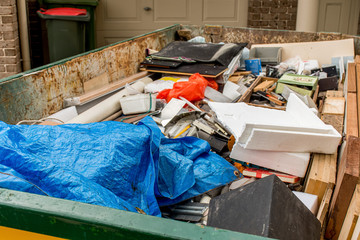

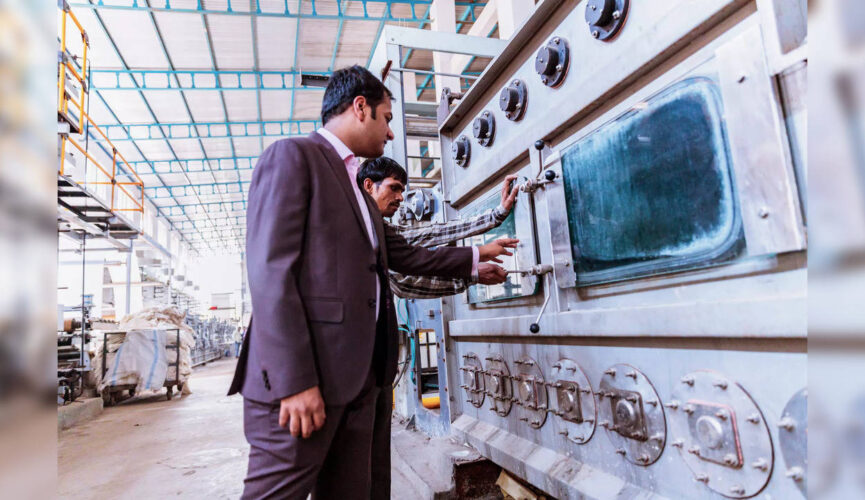
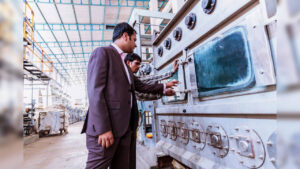


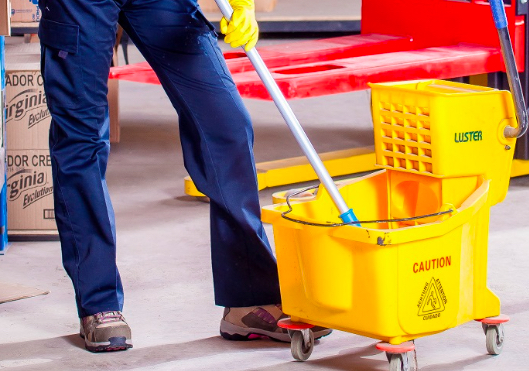
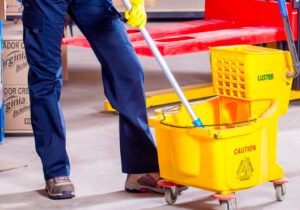 Janitorial services go far beyond a mop hitting the floor, and a vacuum is turned on. They use hospital-grade disinfectants, color-coded microfiber cloths that prevent germ spread, no-dip flat mops that reduce cross-contamination, and HEPA backpack vacuums for better indoor air quality.
Janitorial services go far beyond a mop hitting the floor, and a vacuum is turned on. They use hospital-grade disinfectants, color-coded microfiber cloths that prevent germ spread, no-dip flat mops that reduce cross-contamination, and HEPA backpack vacuums for better indoor air quality.